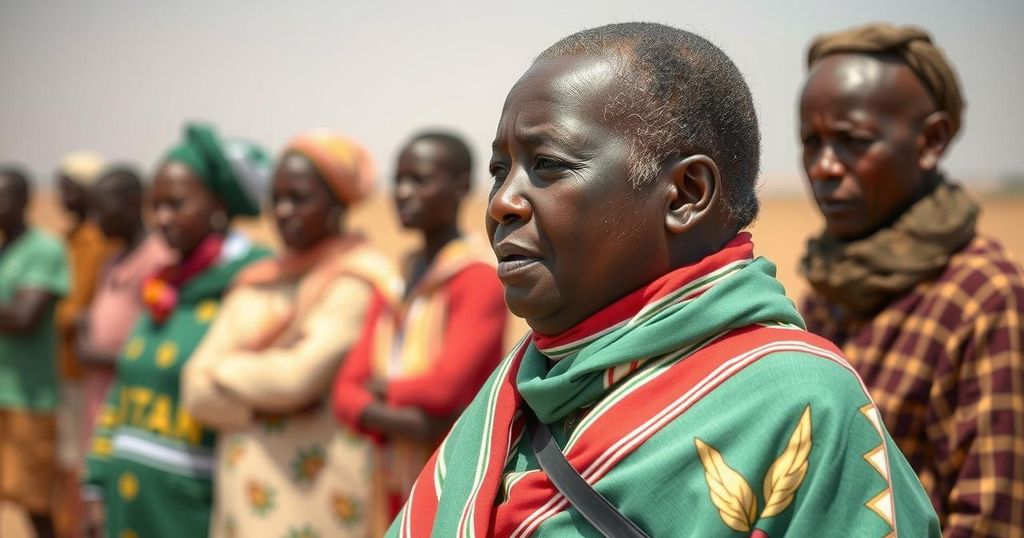The Sudanese government has rejected a UN report declaring famine in five regions, stating the IPC’s assessment lacks transparency. Approximately 24.6 million people face food insecurity due to ongoing conflict, with accusations that both military factions use starvation as a weapon. The government has been criticized for obstructing humanitarian efforts amid a widespread humanitarian crisis.
The Sudanese government has officially rejected a report from the United Nations that indicated famine conditions in five regions of the country, invoking the Integrated Food Security Phase Classification (IPC) analysis. The UN assessment estimated that approximately 638,000 individuals are currently experiencing famine, while an alarming 8.1 million are close to starvation. The government, aligned with army chief Abdel Fattah al-Burhan, criticized the IPC for lack of transparency and procedural failings, claiming the report was speculative and not grounded in current field data, nor did it involve government consultation before its publication. Since the onset of conflict in April 2023, the government has operated from Port Sudan, amidst accusations of obstructing international relief efforts and preventing humanitarian access to areas controlled by rival paramilitary forces.
The ongoing conflict in Sudan, which erupted in April 2023 between the national army and the paramilitary Rapid Support Forces (RSF), has led to widespread destruction and humanitarian crises across the nation. With over half the population—approximately 24.6 million people—facing acute food insecurity, the implications of this situation are severe, as food shortages directly relate to the violence and instability engendered by the war. The IPC provides a systematic assessment of food security in regions affected by conflict, and its findings can be pivotal in guiding international humanitarian responses. However, the Sudanese government has faced criticism for allegedly hindering such initiatives.
In conclusion, the Sudanese government’s denial of the IPC’s famine report reflects a broader tension between local authorities and international agencies attempting to provide humanitarian assistance. With millions facing food insecurity and ongoing conflict, the situation remains dire, exacerbated by bureaucratic challenges to relief efforts. The international community continues to monitor the unfolding crisis, emphasizing the urgent need for transparency and cooperation in addressing food security in Sudan.
Original Source: jordantimes.com






